A surprising number of mass graves surround the home of Thabani Dhlamini in southwestern Zimbabwe.
One of them, pointed out to the BBC, is near the ablution block of a primary school in the village of Salankomo, in the Tsholotsho district. Teachers were killed and abandoned there in the 1980s.
In another, just a few steps from Mr Dhlamini’s home, 22 family members and neighbors are buried in two graves – all killed by the Zimbabwean military under the command of the then leader Roberto Mugabe.
Dhlamini was just 10 years old at the time – but the slight, soft-spoken farmer is still haunted by the memories.
“We couldn’t [to talk about it] and we were afraid to talk about it,” the 51-year-old told the BBC.
All were victims of ethnic killings between 1983 and 1987, when Mugabe unleashed the Five Brigade, trained by North Korea, on strongholds of Joshua Nkomoyour arch-rival.
Some describe what followed as genocide. It is not known how many people died – some estimates point to more than 20 thousand people.
Nkomo was a veteran freedom fighter from the southwestern province of Matabeleland who, more than two decades after his death, is still affectionately known as “Father Zimbabwe”.
The two men had a turbulent relationship during the long liberation struggle against white minority rule – Nkomo came from Zimbabwe’s Ndebele minority and Mugabe from the country’s Shona majority.
They fell out two years after independence, in 1980, when Mugabe fired Nkomo from the coalition government, accusing his party of planning a coup d’état.
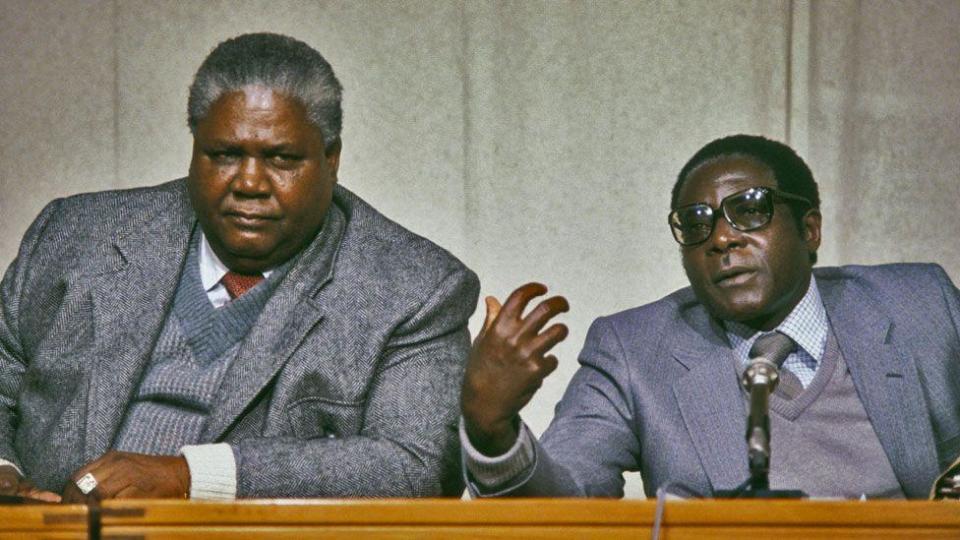
Operation Gukurahundi was launched, which the government said at the time was a counterinsurgency mission to root out dissidents attacking civilians.
“Gukurahundi” means “purifying rain” in the Shona language.
The targets of the elite soldiers were mainly from the Ndebele ethnic group in the Matabeleland and Midlands provinces, and the killings laid the foundation for persistent ethnic tensions.
Mugabe ruled for another three decades – only after being deposed by his former deputy Emmerson Mnangagwa it appeared that Gukurahundi could be properly confronted, although he was also accused of involvement.
Mnangagwa made a point of addressing the issue of reconciliation, given criticism over the failure of several initiatives to allow exhumations and new burials.
Even so, it took President Mnangagwa seven years to establish what he called the Gukurahundi Community Engagement Program. A series of village-level hearings, where survivors can air their grievances, are scheduled for after Sunday’s launch.
Mr Dhlamini said he would participate in the hearings.
“I want to free myself from what I witnessed, I need to vent what I felt,” he said, hitting his chest.
He, along with a group of boys from his village, in 1983, watched as soldiers marched 22 women, including his mother, into a hut which they then set on fire.
When the women broke down the door to escape the flames, the soldiers shot them down with their weapons before they could escape.
Mr Dhlamini’s mother was the only survivor as she managed to hide next to a nearby grain hut.
The soldiers then ordered the older boys of the terrified group watching nearby to carry the women’s shot bodies to the smoking hut and another next to it.
Lotshe Moyo, Mr Dhlamini’s 14-year-old friend, was one of them – but because he wore a pin to support Nkomo, he too was later forced inside, shot and both huts burned to ashes.
Today his remains are still in the ruins – an overgrown area surrounded by a wire fence and many crosses. The names of the dead are inscribed on a whitewashed brick wall.
“When we started talking about it my memory comes back and it seems like it happened today. It makes me feel like I could cry,” said Dhlamini, who added that her mother was so traumatized that she was never able to live in the village.
Families of victims and survivors are divided over whether the government’s new initiative will bring healing and change their fortunes.
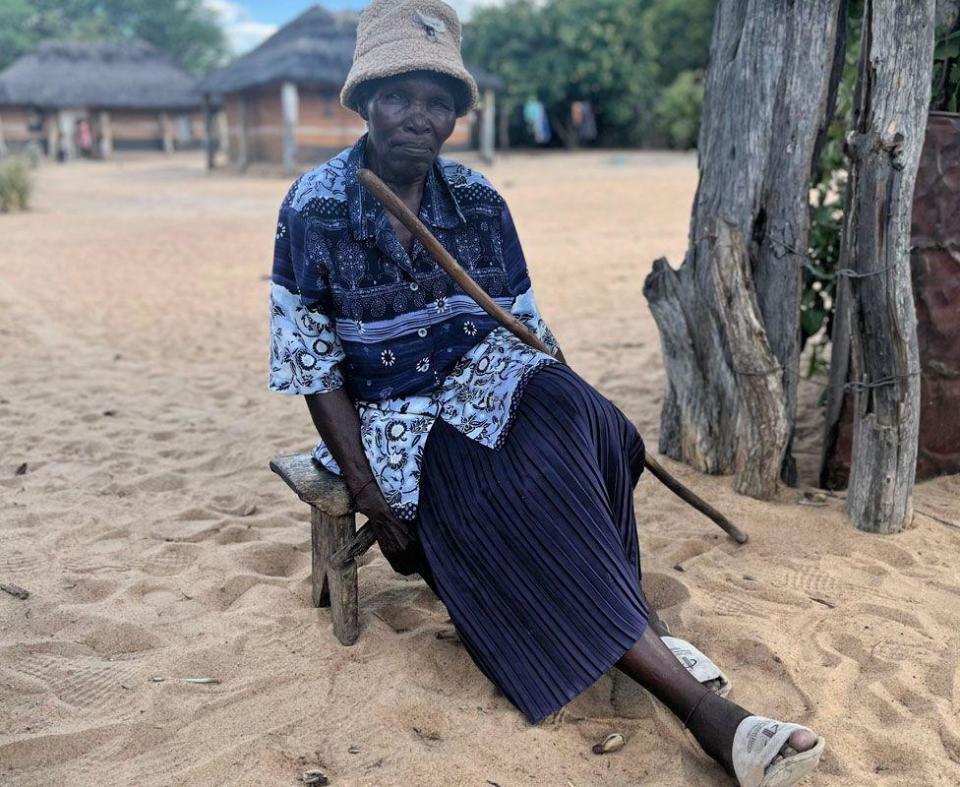

In the nearby village of Silonkwe, 77-year-old Julia Mlilo slowly crawls towards us. She can barely walk now, but she remembers every detail of what happened on February 24, 1983.
At the sound of gunshots, she dropped her hoe in the field where she worked and fled into the woods with her husband and children.
When they emerged, her father and more than 20 of her husband’s relatives had been badly beaten and burned, many of them beyond recognition.
“Only the heads were identifiable,” she said.
They gathered the remains in a tin basin that was used for bathing and buried them in a nearby grave.
The place where they were slaughtered and their burial area, adjacent to a farm field, are now marked by white and red reflective crosses.
“I haven’t forgiven them, I don’t know what would make me forgive them. Whenever I see soldiers I feel pain and start shaking,” Mlilo told the BBC.
“I don’t trust the process because it is being done by the government, but I will participate in it,” she said.
Although Gukurahundi has ended, many believe they are still being punished.
Tsholotsho, like many parts of Matabeleland, remains a desolate and abandoned area with little or no infrastructure and very little development over the past 40 years.
And since the 1980s the conclusions of the various commissions of inquiry into the atrocities have never been made public.
During the Mugabe era, a program to provide identity documents to children whose parents have died or disappeared began and continues.
But previous public hearings and exhumation programs have stalled.
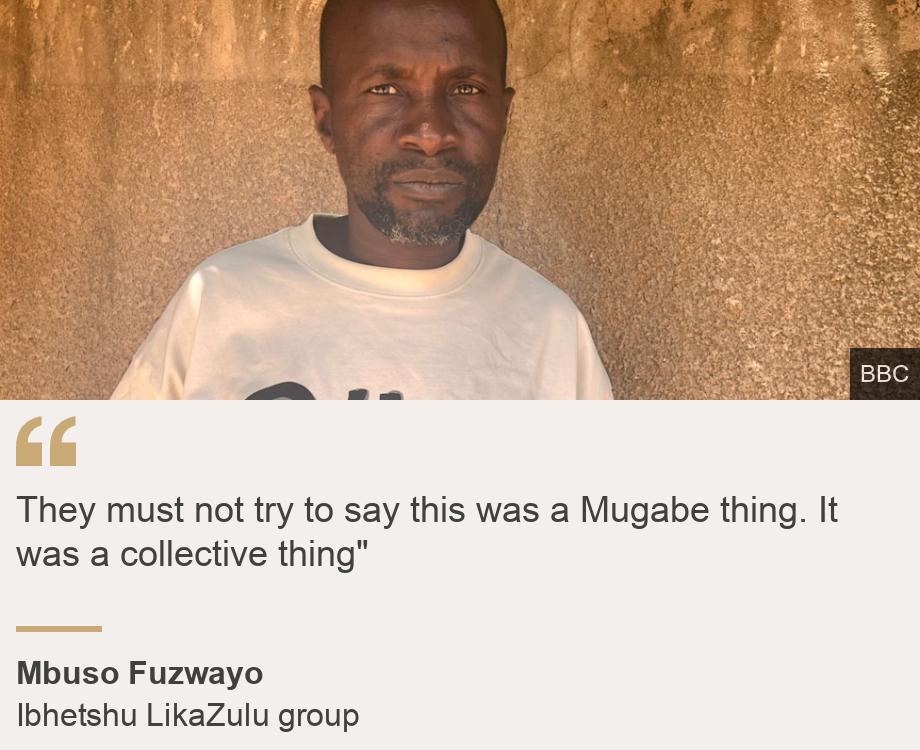

In Bulawayo, the main city of Matabeleland, Mbuso Fuzwayo, from the local pressure group Ibhetshu LikaZulu, spoke to the BBC as he collected a metal plaque to commemorate those killed in Silonkwe.
Several plaques commissioned by the group were stolen or destroyed – a sign, he believes, that Zimbabwe is not yet ready to face its past.
The country has a long history of human rights violations and impunity dating back to white minority rule when it was called Rhodesia.
“We have many violations from the people. What happened during the liberation struggle is that no one was brought to justice,” Fuzwayo said.
“After the genocide, no one was brought to justice,” he said, referring to Gukurahundi.
“What we are saying is that once justice is served, people will begin to respect other people’s rights.”
Suspicions and doubts about the latest process are a major obstacle for President Mnangagwa to overcome, who presents himself as an honest mediator, with a genuine desire to reunite Zimbabwe and repair the past.
He was Minister of State Security during the massacres, which explains the caution felt towards him in the southwest.
Part of this strong opposition comes from the traditional leaders who will lead the hearings.
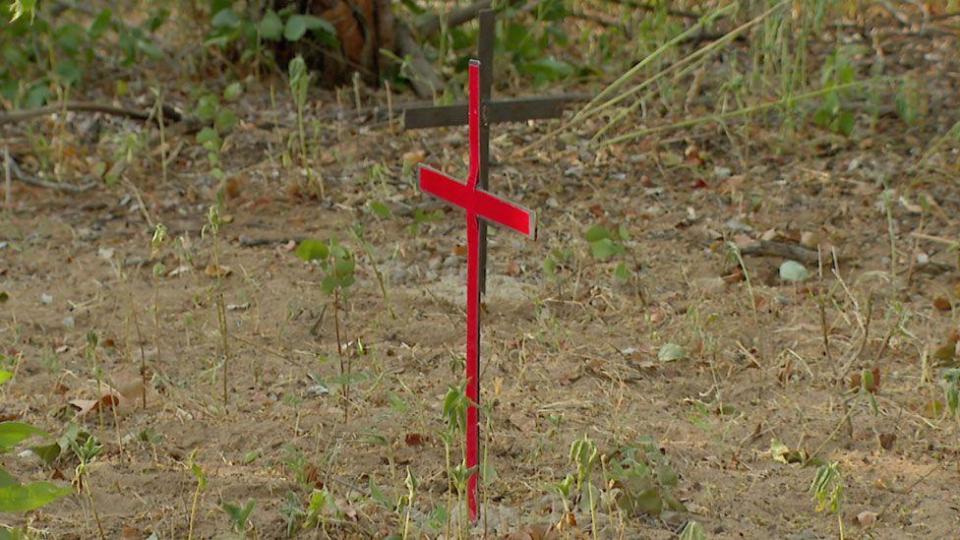

Chief Khulumani Mathema of Gwanda North believes the process is fundamentally flawed.
“It needs to be a national issue that focuses on international best practice, which is how genocides are addressed around the world,” he told the BBC.
Everyone in the region was moved by the atrocities and has a story to tell. As a boy, the chief was beaten by soldiers.
“We have countries that went through genocide. We have Rwanda, we have Germany, but we want to create and reinvent the wheel, which I consider unfeasible,” he said.
“There is not a single genocide that has been completely resolved when the perpetrators are still in control of the levers of power.”
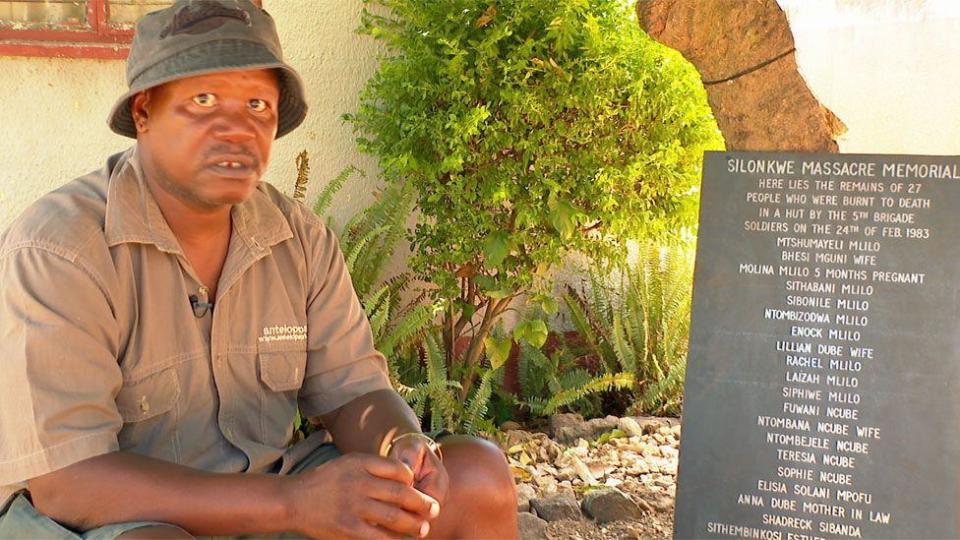

Fuzwayo, whose grandfather was allegedly kidnapped and never heard from again during the massacres, agrees.
“They should not try to say this was Mugabe’s doing. It was a collective thing. The main perpetrator may be dead, namely Mugabe – but Emerson Mnangagwa remains in Mugabe’s absence,” said the 48-year-old.
Despite continued accusations, Mnangagwa has always denied allegations of having played an active role in Gukurahundi and successive governments have rejected allegations that the operation amounted to genocide.
Chief Mathema said the communities’ priorities would be to exhume and identify the bodies from the mass graves and allow families space to mourn their loved ones appropriately.
But he believes there is another piece of the puzzle that the government will need to complete: telling the truth about what happened and the whereabouts of the missing.
This new inquiry will test President Mnangagwa’s sincerity – will the hearings be able to hear from the perpetrators? Will they open up and give answers to the survivors? Will the conclusions of previous investigations now be made public?
“To this day we don’t know why people were killed – why,” Fuzwayo said.
“And they don’t want to talk about it and I still believe there’s a lot they’re hiding.”
You might also be interested in:


Go to BBCAfrica.com for more news from the African continent.
Follow us on Twitter @BBCAfricaon Facebook at BBC Africa or on Instagram at bbcafrica































